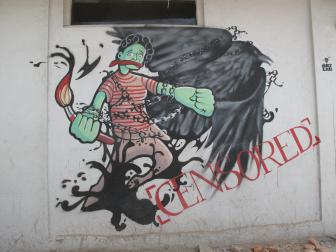Article
The poetry of Banira Giri, Benju Sharma and Manju Kanchuli
The expanding realm of Nepali poetry

September 17, 2013
Banira Giri’s concerns and awareness are wide-ranging; her poetic voice at once abstract and concrete. The poems presented here are her most feminist, but the voice of outrage against oppression and the ironic deflation of the powers that be underlies much of her work. Her thrill in the use of expressive language is readily apparent.
Benju Sharma writes as a woman no longer willing to remain within the confines of her society’s traditions. Yet her diction is modulated and contained, refining her accusations, calling to account, demanding justice within the restraints of an aesthetic awareness, within the rhythms and language of poetry.
Manju Kanchuli explores an inner world driven as much by the sound and possibilities of language as by the limits the male dominated society imposes upon her and all Nepali women. In this dialectic, that moves as well between expression and exploration, between the recognition and expansion of limits, the personal stands for the public.
For Benju Sharma the public makes way for the personal, while for Banira Giri, the public is already infused with the personal and must therefore acknowledge its dual purpose. For all of these writers, Nepali literature and culture, not to mention Nepal’s politics, must reorient itself towards its most resonant source, its women.
Banira Giri, Benju Sharma and Manju Kanchuli are the voice of contemporary Nepali poetry. At once direct and allusive, socially aware and intent on making their emotionally resonant language public, these woman writers have redefined poetic discourse and concerns, and brought private conversations into the public domain. Their collective voice, persistently reaffirmed, has helped rejuvenate Nepali literature and offers the generation of writers to follow a more inclusive and wide ranging poetic discourse.
Two of the poets, Banira Giri and Benju Sharma, hold PhDs in Nepali language and culture; two, Benju Sharma and Manju Kanchuli, are the daughters of Bhim Niddhi Tiwari, one of Nepal’s foremost writers; and the third, Banira Giri, is a scholar of the writings of Gopal Prasad Rimal, the first innovative ‘revolutionary’ Nepali poet of the last century. All work with an awareness of Nepali culture and history but with an intent to make Nepali literature more inclusive and responsive to the voices of women and the oppressed.Banira Giri’s concerns and awareness are wide-ranging; her poetic voice at once abstract and concrete. The poems presented here are her most feminist, but the voice of outrage against oppression and the ironic deflation of the powers that be underlies much of her work. Her thrill in the use of expressive language is readily apparent.
Benju Sharma writes as a woman no longer willing to remain within the confines of her society’s traditions. Yet her diction is modulated and contained, refining her accusations, calling to account, demanding justice within the restraints of an aesthetic awareness, within the rhythms and language of poetry.
Manju Kanchuli explores an inner world driven as much by the sound and possibilities of language as by the limits the male dominated society imposes upon her and all Nepali women. In this dialectic, that moves as well between expression and exploration, between the recognition and expansion of limits, the personal stands for the public.
For Benju Sharma the public makes way for the personal, while for Banira Giri, the public is already infused with the personal and must therefore acknowledge its dual purpose. For all of these writers, Nepali literature and culture, not to mention Nepal’s politics, must reorient itself towards its most resonant source, its women.
© Wayne Amtzis
Sponsors












Partners
LantarenVenster – Verhalenhuis Belvédère

